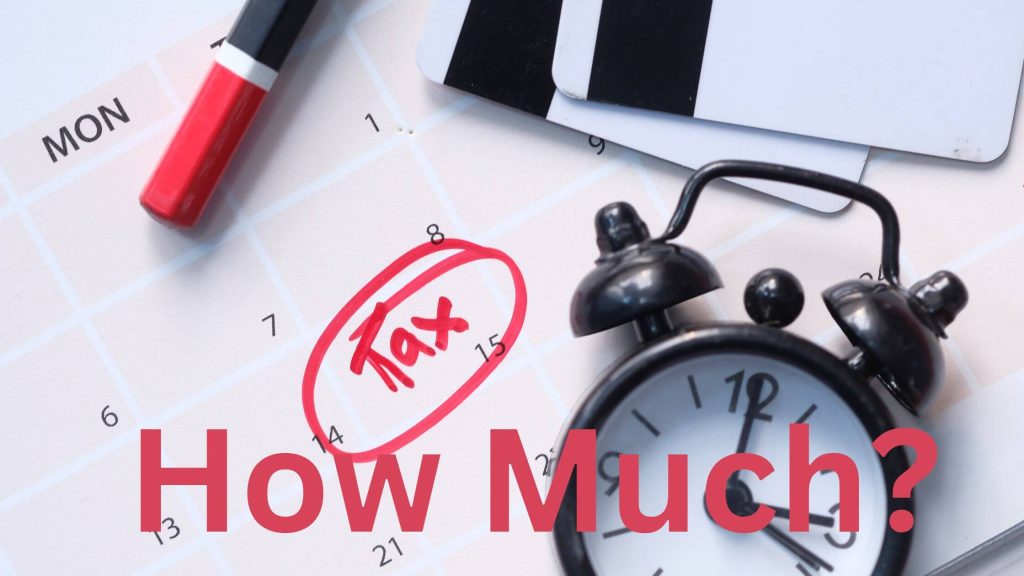How many taxes are there in Kenya?
Intro
Taxation is a crucial aspect of any economy, and Kenya is no exception. As citizens, we are all familiar with the concept of taxes and the deductions that are made from our income. However, there is more to Kenyan taxation than meets the eye. There are various types of taxes in Kenya that are imposed by the government to generate revenue for public services and development projects. In this blog post, we will explore the different types of taxes in Kenya and provide a comprehensive list of taxes that are applicable to individuals and businesses in the country. Get ready to have your understanding of Kenyan taxation demystified as we delve into the world of taxes in Kenya.
Income Tax: Kenya’s Major Revenue Source
Taxation is an essential component of any economy, and the same holds true for Kenya. When it comes to taxes in Kenya, income tax stands out as the country\’s major revenue source. The Kenya Revenue Authority (KRA) is responsible for administering and collecting income tax from individuals and businesses.
The Kenya tax system operates on a progressive basis, which means that the tax rate increases as the income level rises. Individuals are classified into different tax brackets based on their income, with each bracket having a corresponding tax rate. For example, individuals earning a monthly income of up to 24,000 Kenyan shillings are exempt from income tax. Those earning between 24,001 and 40,000 shillings fall into a 10% tax bracket, and the rates increase gradually as income levels rise.
Businesses are also subject to income tax, known as corporate tax. The standard corporate tax rate in Kenya is 30% for resident companies and 37.5% for non-resident companies. However, certain sectors, such as manufacturing, are eligible for a reduced tax rate of 15% to encourage investment and economic growth.
Income tax plays a vital role in funding the government\’s budget and financing public services and development projects. It provides the necessary resources to support education, healthcare, infrastructure, and various other sectors of the economy. The collection of income tax ensures a fair distribution of the tax burden among individuals and businesses, with those earning higher incomes contributing more to the nation\’s development.
In summary, income tax in Kenya is the primary source of revenue for the government. It is a progressive tax system that applies different rates to individuals and businesses based on their income levels. By paying income tax, individuals and businesses contribute to the country\’s development and the provision of essential public services.
Value Added Tax: The Indirect Consumption Tax
Taxation in Kenya is a complex system with various types of taxes imposed by the government to generate revenue for public services and development projects. One of the significant taxes in Kenya is Value Added Tax (VAT), which is an indirect consumption tax.
VAT in Kenya is levied on the sale of goods and services and is collected at each stage of the production and distribution process. It is a percentage of the value added to a product or service at each stage of production or distribution, hence the name Value Added Tax. VAT is ultimately borne by the end consumer, as it is included in the price of goods and services.
The current standard VAT rate in Kenya is 16%. However, certain goods and services are exempt from VAT, such as unprocessed foodstuffs, medicines, and educational materials. Additionally, there is a reduced VAT rate of 8% applicable to certain essential items like electricity, water, and petroleum products.
VAT in Kenya serves as a significant revenue source for the government. It is estimated that VAT contributes around 30% of the total tax revenue in the country. The funds generated from VAT are used to finance various public services, infrastructure projects, and social programs.
The implementation of VAT in Kenya has faced some challenges, including issues with compliance and enforcement. To address these challenges, the Kenya Revenue Authority (KRA) has implemented measures to enhance tax administration and increase VAT compliance.
Overall, VAT in Kenya plays a crucial role in generating revenue and supporting the government\’s efforts to provide essential services to its citizens. Understanding the impact and implications of VAT is essential for both individuals and businesses to ensure compliance and contribute to the nation\’s development.
Import Duty: Regulating International Trade
Import Duty: Regulating International Trade
When it comes to the number of taxes in Kenya and their impact on the economy, import duty stands out as a significant player. Import duty is a tax imposed on goods that are brought into the country from abroad. Its primary purpose is to regulate international trade and protect domestic industries.
Kenya, like many other countries, imposes import duty on a wide range of goods, ranging from luxury items to essential commodities. The rate of import duty varies depending on the type of goods and the country of origin. Certain goods may have higher import duty rates to discourage their importation and protect domestic industries that produce similar products.
Import duty is an important revenue source for Kenya. It contributes to the overall Kenya revenue sources and helps fund various government initiatives and public services. The revenue generated from import duty is used to support education, healthcare, infrastructure development, and other sectors of the economy.
Import duty also serves as a tool for regulating international trade. By imposing tariffs on imported goods, the government can protect domestic industries from unfair competition and promote local manufacturing and production. It creates a level playing field for businesses and ensures that they can compete without being undercut by cheaper imports.
While import duty is necessary for regulating international trade, it can also have an impact on consumers. The cost of imported goods may increase due to the inclusion of import duty, making them more expensive for consumers. However, this is often done to encourage the consumption of locally produced goods and promote economic growth.
Excise Duty: Discouraging Excessive Consumption
Excise Duty: Discouraging Excessive Consumption
Another important type of tax in Kenya is Excise Duty, which is levied on certain goods and services that are considered harmful or luxurious. The main purpose of this tax is to discourage excessive consumption of these goods and to protect public health and well-being.
Excise Duty in Kenya is imposed on a wide range of products, including alcohol, tobacco, petroleum products, and motor vehicles. The rates of excise duty vary depending on the type of product and its perceived harmful effects. For example, higher rates of excise duty are imposed on products with a higher alcohol content or on luxury vehicles, while lower rates may apply to products with lower alcohol content or more fuel-efficient vehicles.
By increasing the cost of these goods and services through excise duty, the government aims to reduce their consumption and discourage harmful behaviors. This not only benefits individuals by promoting healthier lifestyles but also helps to reduce the burden on the healthcare system and the associated costs.
The revenue generated from excise duty plays an important role in supporting government initiatives and public services. It is used to fund healthcare programs, education, and other essential services. Additionally, excise duty can also act as a tool for promoting local industries and encouraging the production of alternative, less harmful products.
It\’s worth noting that excise duty is a sensitive tax and can have a direct impact on consumers. The increased cost of goods and services may be passed on to the consumer, leading to higher prices. However, this is an intentional consequence to discourage excessive consumption and promote healthier choices.
Property Tax: Supporting Local Governments
Property tax is another important type of tax in Kenya that plays a significant role in supporting local governments. It is levied on the value of land, buildings, and other immovable properties. The revenue generated from property tax is primarily used to fund local government initiatives and services, such as the construction and maintenance of infrastructure, provision of healthcare and education, and the overall development of local communities.
Property tax in Kenya is based on the assessed value of the property, which is determined by the relevant local authorities. The rate of property tax varies depending on the location and type of property. Residential properties are usually subject to lower tax rates compared to commercial properties, reflecting their different uses and potential for generating income.
One of the main benefits of property tax is its ability to provide a stable source of revenue for local governments. Unlike income tax or VAT, property tax remains relatively stable over time and is less affected by economic fluctuations. This stability allows local governments to plan and budget effectively, ensuring the delivery of essential services to their constituents.
In addition to providing revenue, property tax also serves as a mechanism for promoting efficient use of land and property. By imposing a tax on the value of properties, the government encourages property owners to utilize their land and buildings more productively. This can lead to better land management, increased investment, and overall economic development at the local level.
Overall, property tax in Kenya plays a crucial role in supporting local governments and driving development in communities. It provides a stable source of revenue and encourages the efficient use of land and property. By contributing to property tax, individuals and businesses contribute to the growth and prosperity of their local communities. So, next time you pay your property tax, remember that you are playing a vital role in supporting your local government and the services they provide.
Stamp Duty: Governing Property Transactions
Stamp Duty: Governing Property Transactions
When it comes to buying or selling property in Kenya, one cannot escape the clutches of stamp duty. Stamp duty is a tax levied on various property transactions, including the sale, transfer, and lease of land or buildings. Its main purpose is to formalize these transactions and provide legal recognition to property ownership.
The rate of stamp duty in Kenya varies depending on the type of property and the value of the transaction. Residential properties generally attract lower stamp duty rates compared to commercial properties, reflecting the different market values and potential for generating income. The stamp duty rates range from 1% to 4% of the property value, and in some cases, a flat fee may apply.
The revenue generated from stamp duty plays an essential role in supporting government initiatives and public services. It helps fund infrastructure development, urban planning, and the overall growth of cities and towns. Additionally, stamp duty contributes to the economy by providing a stable source of revenue and formalizing property ownership, which can attract local and foreign investment.
While stamp duty may add an extra cost to property transactions, it also offers several benefits. The payment of stamp duty provides legal recognition and protection to property owners, ensuring their rights and ownership are safeguarded. It also helps maintain a transparent property market and prevents fraudulent or illegal transactions.
So, next time you engage in a property transaction in Kenya, be prepared for stamp duty. It may be an additional cost, but it plays a crucial role in governing property transactions, supporting the economy, and providing legal security for property owners.

